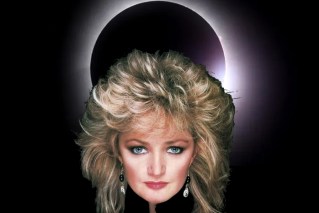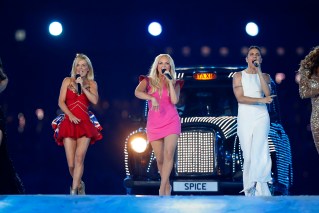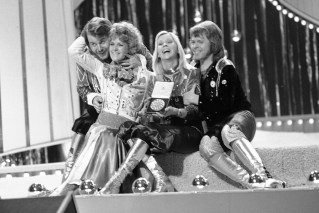Why Coldplay is the most overrated band in the world

The year was 2000. The world had successfully survived the Y2K bug. We mourned the death of Peanuts creator, Charles Schulz. We marvelled at the birth of geocaching; and a little band, led by a man named Chris Martin, released their first studio LP, Parachutes. That band was Coldplay.
You’d have to be living under a rock for the last 14 years to be unaware of the events that followed: The band’s epic rise to fame; their chart-dominating success; and Martin’s own deportment, apparently so humble he could shame a Tibetan monk into heading back to monastic training.
But some of us didn’t buy it. Something wasn’t quite right.
Fourteen years later, on the eve of the release of their sixth studio album, Ghost Stories (out 16 May), one has to ask: How the hell did we get this far?
Quite simply, Coldplay took a sound that had been forged over decades by other, better, bands and adopted this sound as theirs. While this is not an unknown phenomenon in the music world, the meteoric rise of the band is.
One could argue that this early accomplishment – releasing a chart-topping debut LP that comprised multiple Top 10-charting singles, scoring a plethora of advertising licensing deals in the process – alone earned them a seat at the table of popular rock.
One could also argue that they produced, packaged and delivered contemporary music that can only be described as middle-of-the-road – the very definition of non-offensive and ‘radio-friendly’ – not to mention aimed at an audience who could, en masse, propel any YouTube toting youngster to ill-deserved stardom (*cough-Justine Bieber-cough*).
Yes, pretty much every mainstream media outlet labelled their debut album as a masterpiece – a relevant, era-defining powerhouse of aural wonder – but the truth is, we’d heard it all before.

The early days: The band in 2002. Photo: Getty
For decades, the world had been rocking hard to the likes of Journey, The Rolling Stones, The Doors, U2, Red Hot Chili Peppers … the list goes on. In this respect, the only real thing that established Coldplay was timing.
While Chris Martin appeared to have the natural ability to seduce media journalists across the globe, thanks in part to a high-profile marriage to Hollywood star Gwyneth Paltrow (which ended yesterday, coincidentally), one could not deny that there were many other far less successful bands, which were playing far more adventurous and genre-trouncing music. There was nothing new to hear here.
Interestingly, leading internet music media beacon, Pitchfork, found Parachutes a poor piece of music, scoring it 5.3 out of 10 and describing it as “forgettable”. A voice of reason rising up from a cacophony of sycophantic waxing?
But we weren’t the only ones to think that something was amiss.
For a while leading up to this period, U2 had been dabbling with what can only be called a new artistic direction; it appeared they were attempting to reinvent themselves for a new generation of listeners (who did they think they were, Madonna?).
Exploring new sonic territory, easily described as quirky and experimental, U2 alienated long-time fans and critics alike, with the release of 1997’s Pop.
Sure, the accompanying tour was on par with any visual spectacular that Gaga could come up with, but it was becoming pretty apparent that the band had lost their edge (no pun intended).
Cue: Coldplay’s debut album and ensuing frothing at the mouth from all and sundry.
But with the instant chart success of Coldplay’s early material, U2 now sat up and took notice, with Bono announcing they were, “reapplying for the job of the best band in the world”. They’d clearly set their tongue-in-cheek sites on these lads from London.
It took them many years of hard work, on the back of 2000’s All That You Can’t Leave Behind, but their next album, No Line On The Horizon, struck many chords in music charts around the world – U2 appeared to be firmly back on track to reclaiming the throne.
Meanwhile, Coldplay were working on the thrilling Viva la Vida or Death and All His Friends and the boring Mylo Xyloto – the musical equivalent of chalk and cheese.
Watching all this play out was akin to witnessing the military action of super powers, locked in a bitter battle for world chart domination.
But there were more than music charts at stake. This was a battle for all our hearts and souls.
U2 may have turned its back on a legion of fans, but it was with the best of intentions. They pronounced their mea culpa, said their Hail Marys and were welcomed back into our loving arms because, well, we wanted them back.
Coldplay, on the other hand, will never have the blues-rock driven fury of The Rolling Stones. They will never have the political-agenda fuelled early days of U2. They will never represent a generation of lost innocence and social upheaval that The Doors did. Longevity in the music industry is awarded to those who stand for more than just fame and success.
Perhaps the title of Coldplay’s new album, Ghost Stories, hints at a collection of goodbyes from a band past their used by date. Whatever the coming LP contains, this is likely their last chance to prove they deserve our ears. Don’t blow it, boys.
What do you think? Tell us in the comments below.








